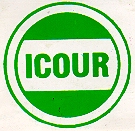

 |
|
ICOUR Tono Dam |
| The Tono Irrigation Project is located in the Kassena-Nankana district of Upper East Region of Ghana. The project is being managed by Irrigation Company Of Upper Region Ltd. (ICOUR). ICOUR is a Ghana Government organization established to promote the production of food crops by small scale farmers within organized and managed irrigation scheme. |

|
The Tono dam is one of the largest agricultural dams in West Africa and serves as a place for year round farming. About 2,490 hectares of land is irrigated with water from the 2½ mile long dam which serves seven villages in the Kassena Nankana District. The dam was built in the late 70's and early 80's by Taysec, a British engineering company.
The popular cash crops being cultivated on the project are rice, soya bean, and tomato. Future cash crops may also include cashew. While ICOUR tomatoes are marketed in the southern region of Ghana, the soya bean is sold to industries throughout Ghana.
The dam allows for farming around the year and has greatly aided in the development of Navrongo. Unfortunately the dam has also created a problem by creating the ideal conditions for a certain type of snail which participates in the life cycle of the schistosomiasis parasite. This parasite invades the body through the skin and resides in the intestinal tract or walls of the bladder. It can cause painful bleeding and, if left untreated, sterility.
According to a research conducted by Ghana's Ministry of Health and the Danish Government, urine and faecal samples obtained from 779 school children in eight schools near the dam revealed that 699 had both the urinal and intestinal diseases. Dr. J.A. Amankwa, Senior Medical Officer in charge of the Navrongo War Memorial Hospital who led the research team, said some school close to the dam, have hundred per cent of their pupils suffering from both diseases. He said the present findings will provide the prevalence and intensity of urinary and intestinal schistosomiasis among school children in the area to enable immediate action to be taken to control the diseases. He said the study among others, reveals how lack of human health considerations in large-scale agricultural developments, create human health hazards. Dr. Amankwa suggested the sinking of boreholes for the dam area and for schools in the area as an alternate source of water supply.
If you are interested in contacting ICOUR you can send mail to: Fred Abakah; ICOUR Ltd.; P.O. Box 780; Accra, Ghana; West Africa.
© MCMXCVIII All Rights Reserved
 Back to Virtual Navrongo
Back to Virtual Navrongo
 Back to the Main Page
Back to the Main Page
